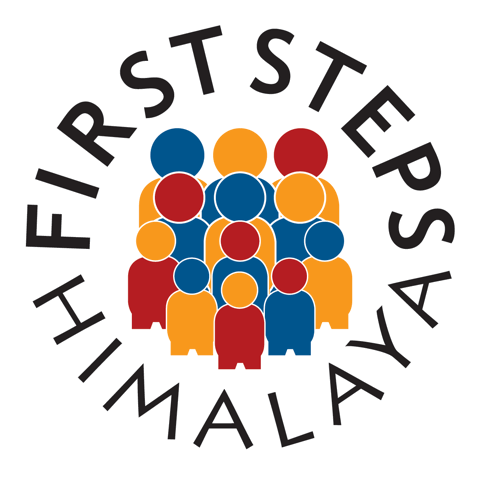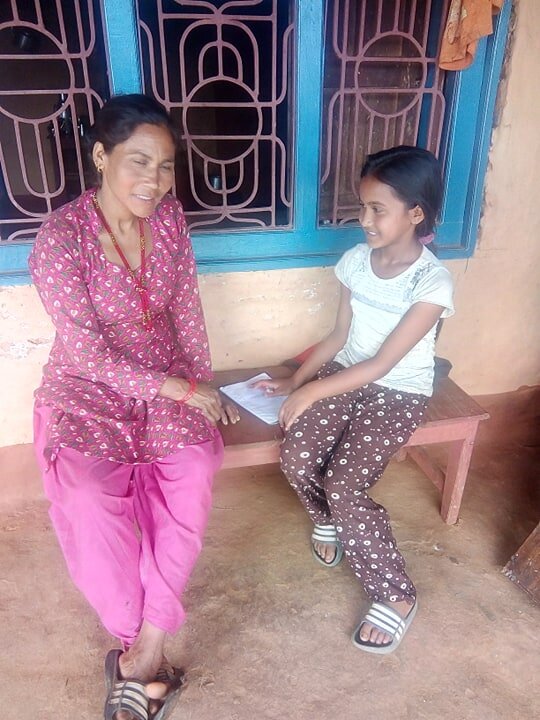The parent is the most influential person in the child’s life, responsible not only for the child’s basic needs but also to nurture their growing sense of self. Parents are a child’s first teacher and serve as a role model for the developing child.
Nepali children spend around 65% of their waking hours at home and only 35% at school. Yet, few Nepali parents understand their vitally important role as parent educators for their children. Traditionally parents in Nepal assume that their child will learn everything at school and take very little responsibility for their child’s educational outcomes.
Engaging parents with their child’s learning
Through our Parent Education workshops, First Steps Himalaya aims to teach rural Nepali parents the importance of spending time with their children. This investment of time can ensure far greater educational outcomes than expressing their love by giving sweets to their children.
"Parents need to take some responsibility for their children’s education.” says Founding Director, Durga Aran, “They don’t need to be educated themselves. Simple activities like cooking together can be used to teach their children basic literacy, numeracy as well as good manners.” By providing a nurturing home environment, parents can start to see a huge difference in the progress of their children.
Nepal’s lengthy lockdown has highlighted the need for parents to help their children learn whilst schools remain closed. When parents see the difference in their children who have attended child friendly classes, they cannot believe the strong love of learning the children develop.
First Steps Himalaya now hopes to see parents take the next step in supporting their children’s education by taking an active role in learning at home. “When parents engage with their children more and take an active interest in their learning, they can motivate their children to learn more.” continues Durga Aran. “Even when children cannot go to school during lockdown, they can learn at home with their family. There are lots of ways parents can help their child learn without specialist knowledge or learning materials.”
Simple, household learning resources
Children naturally want to have fun and are happy playing with virtually anything they find around the home. A piece of fabric can suddenly become a cloak or a flag, a shoe can become a car or a bridge. Sticks and stones are great learning materials. Dhanu in Syangja said that she taught her daughter about shapes using sticks outside the family home. Pabitra in Sindhupalchok encouraged her children write their names using corn kernels. Songs and rhymes are a great way for children to learn their letters and numbers. Children love teaching these to their parents so the whole family can sing together.
Keeping active
Children need to learn how things grow, the importance of protecting the environment and having respectful relationships within their community. Activities that support this are a great way to relieve boredom and stress in young children during lockdown too.
Traditionally, Nepali parents don’t encourage active movement in babies and toddlers. They often leave their baby for hours in a hanging basket while working in their fields, but it would be better to take the baby along where possible. Parents don’t realise that hopping, skipping and jumping is a vital step towards gaining gross motor skills before their bodies can master the fine motor skills used in writing.
Sharing the importance of parents
The First Steps team disseminate parent education tips through their locally employed mobilisers, social media pages and community-based parent education sessions. In many ways the lockdown in Nepal has highlighted the need for more parental involvement in a child’s education. “Parents can talk and sing to their babies and encourage movement rather than leaving the baby for hours in a basket” says Nepal Project Manager, Ranjana Giri. “They can do simple things like putting dry rice or beans inside an empty bottle to make a home-made rattle for their baby.”
First Steps Himalaya believes that with a bit of support and growing confidence, rural Nepali parents could become great parent educators supporting their child’s love of learning.
For more information visit: www.firststepshimalaya.org










